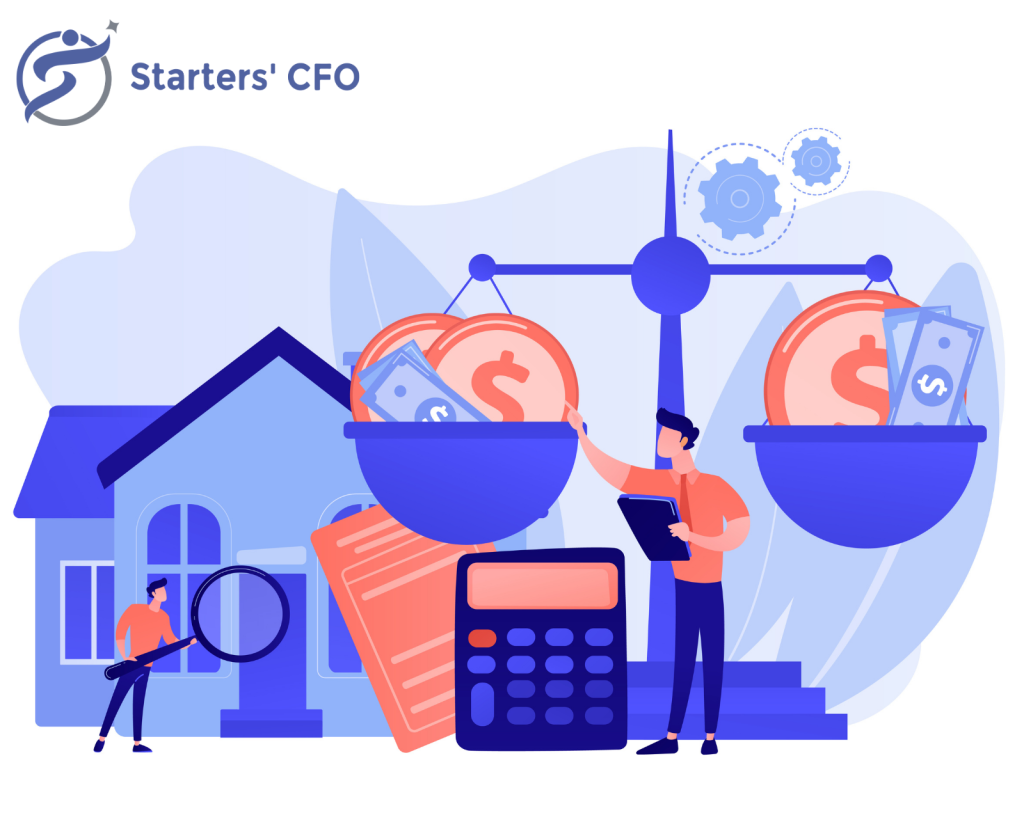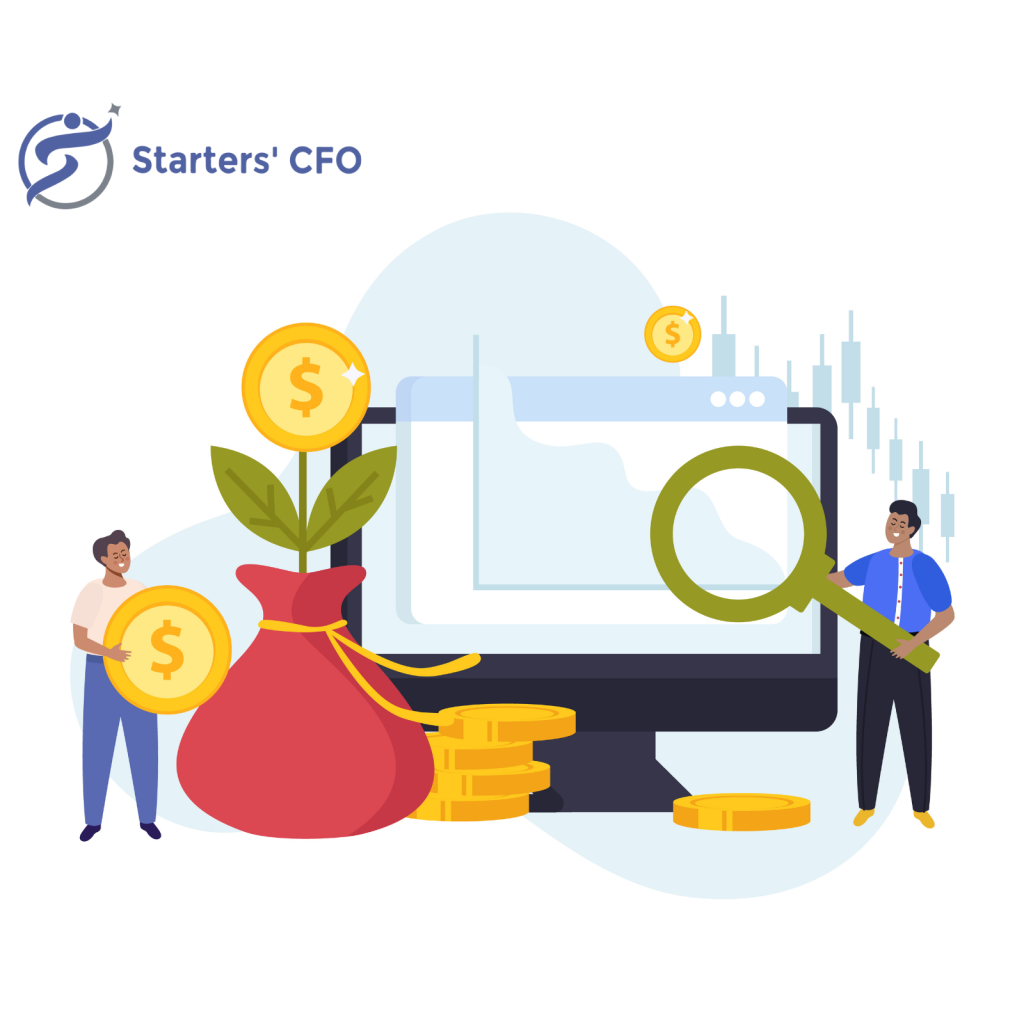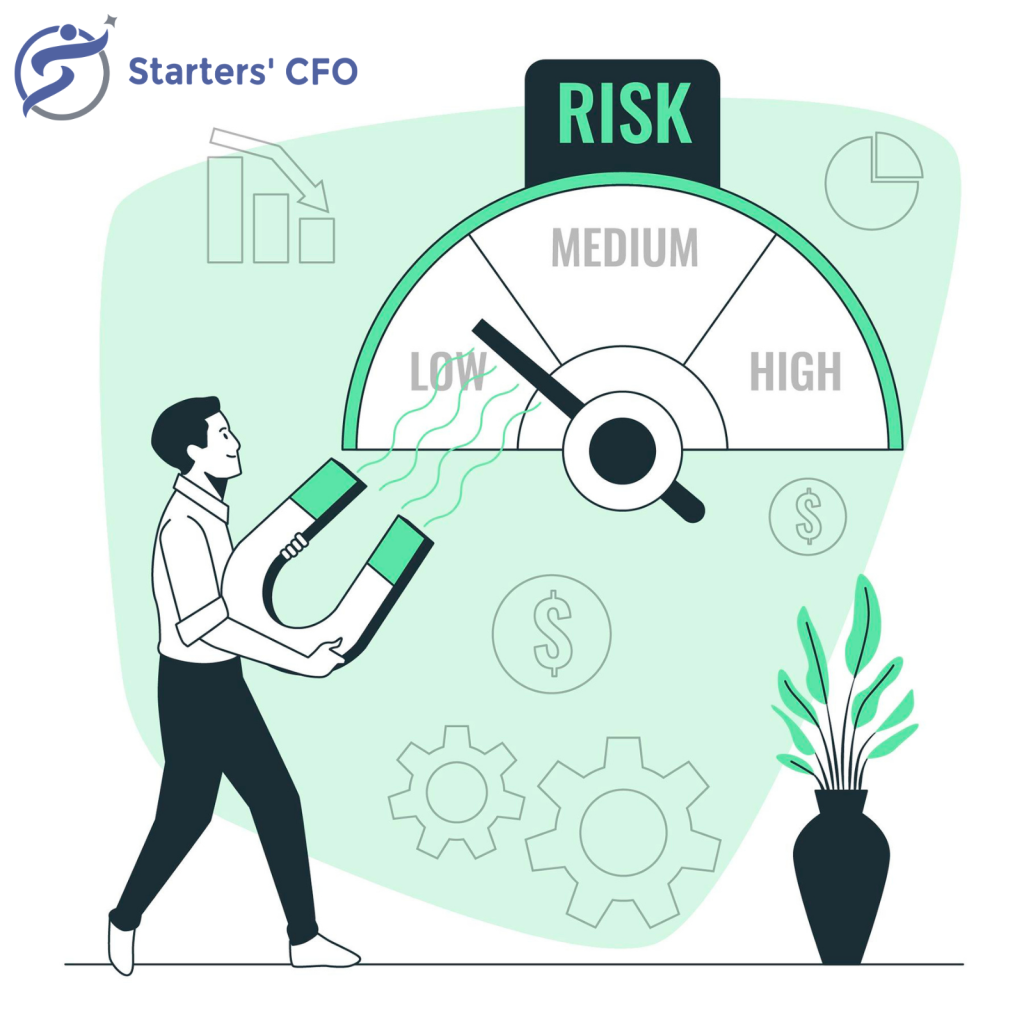
Business valuation, often seen as a complex puzzle, is the process of determining the worth of a business’s ownership interests. Moreover, it’s a crucial exercise for entrepreneurs, investors, and stakeholders, as it shapes decisions related to investments, fundraising, and strategic planning.
In this comprehensive blog, we will delve into the top 5 key insights from Starter’s CFO approach to equity valuation, backed by relevant examples. Additionally, we will explore essential terms of this dimension, such as discounted cash flow and pre-money valuation.

1. The Role of Discounted cash flow (DCF)
At the heart of Business valuation lies the Discounted cash flow (DCF) method, a financial tool used to estimate the present value of a company’s expected future cash flows. This method is particularly useful for startups and growing businesses, where future cash flows are a significant determinant of value.
Example: Imagine you’re the founder of a tech startup. Your financial projections suggest that your company will generate INR 50 lakhs in cash flow annually for the next five years. If you apply a discount rate of 12%, Starter’s CFO can demonstrate that the present value of these future cash flows is approximately INR 2.21 crores. This insight not only helps to understand the essential value of your business but also aids in negotiating terms with potential investors.

2. The Connection Between Pre-Money and Post-Money Valuation
Business valuation discussions often revolve around two critical terms: pre-money valuation and post-money valuation. Understanding these concepts is essential for both founders and investors.
– Pre-Money Valuation: This is the value of the business before any investment is made. It represents the starting point of your financial journey as a founder.
– Post-Money Valuation:
Post-money valuation includes the investment amount, and it’s essentially calculated as the pre-money valuation plus the investment.
Example: Suppose your startup has a pre-money valuation of INR 5 crores, and an investor injects INR 1 crore. Your post-money valuation becomes INR 6 crores. The investor now owns 1/6th of the business (INR 1 crore out of INR 6 crores), and you, as the founder, retain the remaining 5/6th. Starter’s CFO ensures that these valuations align with your business objectives, and aids in negotiations to secure investments without diluting your ownership excessively.

3. Understanding Equity Dilution
Equity dilution is a concept that often concerns founders, especially when they bring in external investors. It refers to the reduction in the ownership percentage of existing shareholders due to the issuance of new shares.
Example: Suppose you are a founder who owns 100% of a startup valued at INR 10 lakhs. To raise capital, you decide to issue new shares to investors worth INR 2 lakhs. This means the post-investment value of the company is now INR 12 lakhs, and your ownership has been diluted from 100% to approximately 83.33% (INR 10 lakhs out of INR 12 lakhs). Starter’s CFO helps to understand the implications of equity dilution and strategize to maintain a fair share of your business while attracting necessary investments.

4. Valuation Sensitivity Analysis
Business valuations are sensitive to changes in underlying assumptions. Conducting sensitivity analysis is crucial to understanding how variations in key variables can impact your equity valuation. This is especially valuable for startups where projections may have a higher degree of uncertainty.
Example: Let’s say your software startup is projected to grow at a rate of 20% per year. However, you realize that in a more optimistic scenario, the growth rate could be 30%. Starter’s CFO can perform sensitivity analysis to show that the equity valuation under the optimistic scenario is significantly higher. Understanding these potential valuation fluctuations helps you make informed decisions and plan for different scenarios.

5. Assessment of Risk and Return
Equity valuation is not just about numbers, it’s about risk and return. Investors seek higher returns for taking on greater risks associated with a business. Understanding this trade-off is essential for both founders and investors.
Example: Consider a fintech startup operating in a highly competitive and regulated market. This business carries a higher level of risk compared to a well-established, diversified corporation. As a result, potential investors may demand a higher expected return for investing in the fintech startup, which can affect the startup’s equity valuation. Starter’s CFO assesses these risks and returns, ensuring that your valuation accurately reflects market realities.
Conclusion
Business valuation is a multilayered process. It involves understanding the financial intricacies of your business and considering the impact of external investments. Moreover, it requires the ability to navigate risk and return dynamics. The insights gained from Starter’s CFO approach to equity valuation provide a comprehensive view of your business’s worth.
From Discounted cash flow’s ability to unearth basic value and to comprehending pre-money valuation and post-money valuations, these insights empower you to make informed decisions regarding your business’s equity. Moreover, they help you grasp the implications of equity dilution, navigate different valuation scenarios, and assess the risk-return profile of your business.
Additionally, Starter’s CFO serves as your trusted guide throughout this journey. They will help you pilot the details of equity valuation, ensuring that your decisions align with your business objectives. Furthermore, equity isn’t just a financial metric; it represents your vision, the potential of your business, and the aspirations you have for the future. Consequently, understanding and leveraging these insights equips you to make strategic choices that can propel your business to new heights.




